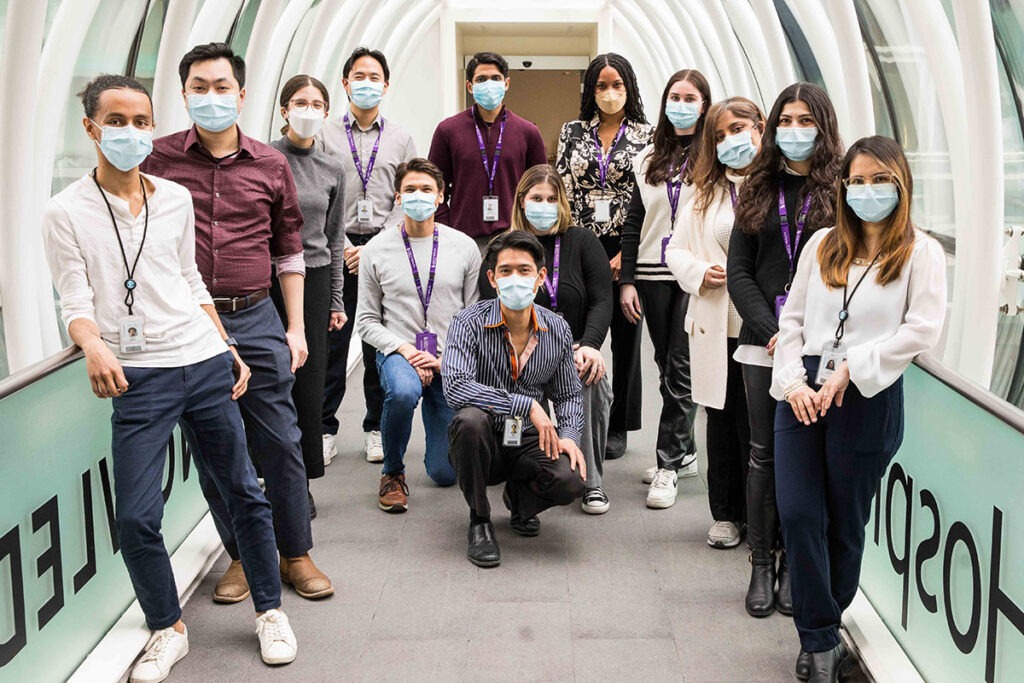No strangers to pandemics, HIV and infectious diseases researchers study new ways to treat and prevent viruses

Diseases don’t stop in a pandemic. Neither do our researchers. In this series, we highlight Unity Health research projects that have persisted despite lockdowns, work-from-home arrangements and a global focus on another disease entirely. Here are their stories.
Research goals: To treat and prevent infectious diseases such as HIV and sexually-transmitted infections
Project lead: Dr. Darrell Tan, scientist at the MAP Centre for Urban Health Solutions
Dr. Tan and his research team at the Options Collaboratory for HIV/STI Treatment and Prevention Science are no strangers to pandemics: long before COVID-19 became a reality, their team had been studying HIV and other sexually transmitted diseases that have caused global pandemics and public health concerns for decades.
“We aim to find more ways to treat and prevent these conditions and expand the menu of options available to people, recognizing that different people have different needs,” Dr. Tan says.
Many of their studies continued throughout the COVID-19 pandemic, both in the hospital and in community clinics, hoping to reach as many people as possible to help accomplish this goal.
A study evaluating implementation of pre-exposure prophylaxis (PrEP), a medicine people at risk of HIV take to prevent the disease, is one example. Working with sexual health, public health, hospital-based and family medicine clinics, the team has tried to ensure that whenever folks at risk of HIV come into contact with health care, they are linked to PrEP services.
“Though many of our partner organizations were hardest hit by COVID-19, I am really grateful that we’ve been able to continue this research,” Dr. Tan said. This study is not yet over, and the lack of interruption during the COVID-19 pandemic has been crucial to its continuation.
In early 2020, Dr. Tan’s team launched a trial to look at whether they could deliver post-exposure prophylaxis (PEP) against HIV in a new and effective ways. PEP is the use of HIV medication for four weeks right after a potential exposure to HIV. Historically Dr. Tan and his team had seen that after someone requested PEP, they didn’t always complete their sexual health testing at St. Michael’s.
“When someone comes in the door and asks for PEP it’s an opportunity to engage them in a whole suite of sexual health services,” he said. “We made this trial to keep people engaged with us.”
The team designed a text messaging support service to see whether this would help keep people engaged, and also developed nurse-led delivery of PEP to eliminate the barrier of having to come to a hospital to close the loop. While the pandemic paused the nurse-led intervention, Dr. Tan and his team were able to get the text messaging portion off the ground and have been enrolling participants to the trial.
A third trial that has continued throughout the various waves of the pandemic investigates the first long-acting injectable antiretroviral treatment regimen, through which patients can receive two medications injected every two months as HIV treatment instead of taking pills every day.
“It’s another thing that makes me very proud – in the early days of COVID, my team was masking up and coming in because our patients were relying on us for injections, which is essential for controlling HIV infection.”
Dr. Tan is also looking forward to start new research projects in the coming months, including a community-based research project to study one of the same long-acting injectable anti-HIV medications for pre-exposure prophylaxis. Like the use of injections for HIV treatment, this would eliminate the need for patients to take daily pills.
“We can use that as a catalyst for reimagining how we deliver care, especially for folks who we have not been successful at reaching through existing therapies.”
More Unity Health research project stories
By: Ana Gajic
